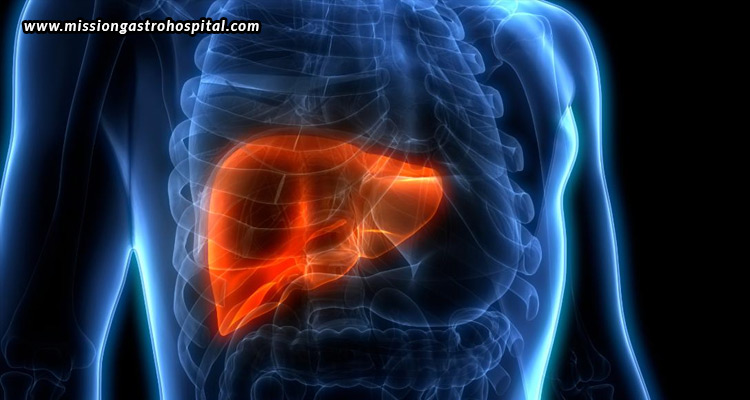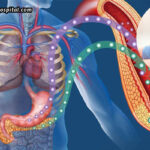Cirrhosis, hepatitis, and non-alcoholic fatty liver disease (NAFLD) are all long-term conditions that affect liver function and are collectively referred to as chronic liver disease (CLD). Because the liver is crucial for digestion, detoxification, and metabolic control, its condition can have a significant impact on overall wellness. It is essential to manage CLD well in order to reduce symptoms, slow down the progression of the disease, and improve the quality of life. This blog examines all-encompassing approaches to help people with chronic liver disease, such as dietary changes, exercise, mental health assistance, and medicinal therapies.
What is Chronic Liver Disease?
In its early stages, CLD frequently exhibits no symptoms at all and develops gradually over time. Viral infections like hepatitis B and C, heavy alcohol use, metabolic diseases including non-alcoholic fatty liver disease, and autoimmune illnesses are common causes. Serious side effects, including liver failure and cancer, might result from untreated chronic liver disease. Fatigue, jaundice, abdominal swelling, nausea, and difficulties concentrating are some of the main symptoms of CLD, which emphasizes the significance of prompt diagnosis and individualized treatment regimens.
Managing and treating Chronic Liver Disease
Medical management
The kind and severity of the illness determine the treatment plan. Antiviral drugs can successfully suppress the virus in cases of viral hepatitis, but corticosteroids or immunosuppressants are frequently necessary in cases of autoimmune hepatitis in order to lessen liver inflammation. In order to treat problems like hepatic encephalopathy or ascites, patients with cirrhosis may require medication. In diseases like NAFLD, newer treatments that target inflammation and fibrosis have the potential to improve liver health. To monitor the course of the condition, routine liver function tests are equally important. Advanced imaging methods such as MR elastography and FibroScan offer comprehensive information on liver scarring and stiffness. Liver transplantation, which gives people with permanent liver disease a new lease on life, may be required in critical situations.
Dietary recommendations
Since the liver depends on healthy nourishment to repair and function, a nutrient-dense diet is crucial to managing chronic liver disease. While antioxidant-rich foods like berries and green tea help lower inflammation and oxidative stress, incorporating entire meals like fresh fruits, vegetables, whole grains, and lean meats delivers vital minerals. In order to prevent fat accumulation in the liver, it is essential to limit saturated fats, trans fats, and refined sugars. Patients with cirrhosis or fluid retention should pay special attention to controlling their sodium consumption to prevent oedema and ascites. While avoiding alcohol and processed foods helps prevent additional liver damage, staying hydrated supports metabolic processes and the elimination of toxins.
Lifestyle modifications
For those with NAFLD, it is essential to reach and maintain a healthy weight because even slight weight loss can dramatically lower liver fat. While reducing exposure to dangerous chemicals found in cleaning supplies and pesticides helps further safeguard liver health, quitting smoking is equally vital because it aggravates liver damage. Furthermore, getting enough sleep is crucial for immune system performance, metabolic health, and the liver’s natural healing processes, making it a vital aspect of overall wellbeing.
Exercising
Maintaining a healthy weight and enhancing liver function require regular exercise. Research indicates that moderate-intensity physical activities, such as swimming or brisk walking, improve insulin sensitivity and decrease hepatic fat buildup. Muscle mass is increased by resistance exercise, which helps control metabolism. Patients should consult their healthcare provider to design a safe exercise program that suits their abilities and limitations.
Mental health and emotional support
Living with chronic liver disease can be emotionally taxing because the physical symptoms and lifestyle changes that impact day-to-day living are frequently accompanied by social isolation, anxiety, and despair. While attending support groups offers an emotional connection and useful guidance from others going through similar struggles, seeking professional therapy or counselling can offer helpful coping mechanisms. Deep breathing exercises, yoga, and mindfulness meditation are a few stress-reduction methods that help improve mental and physical health. Furthermore, keeping lines of communication open with friends and family creates a solid support network that enables patients to face challenging circumstances with more fortitude.
Preventing complications in Chronic Liver Disease
Medical management
Reducing the chance of complications like bleeding, infections, and liver cancer is part of proactive management of chronic liver disease. Hepatitis A and B vaccinations are essential for people who are at risk of developing additional liver damage. Since diabetes and hypertension frequently deteriorate liver health, managing comorbidities is equally important.
Regular checkups
In order to effectively manage chronic liver disease, routine medical examinations are essential. Frequent monitoring enables medical professionals to identify possible problems early and modify treatment methods as necessary. Frequent liver cancer screenings provide for early identification and improved results, especially in high-risk individuals. To evaluate liver health and direct interventions, liver specialists employ techniques such as imaging, biopsies, and blood testing.
Comprehensive care and specialized support
A multidisciplinary strategy comprising hepatologists, dietitians, physical therapists, and mental health specialists is necessary to manage chronic liver disease. Each contributes in a different way to the development of an all-encompassing care plan that takes the illness into account. You can always rely on Mission Gastro Hospital, the best liver specialist in Ahmedabad, staffed with expert medical practitioners that are dedicated to providing comprehensive treatment and advanced diagnostic services for patients with chronic liver disease. After all, with the right resources and commitment, it’s possible to manage chronic liver disease effectively and enjoy a better quality of life. Despite the difficulties associated with chronic liver disease, people can live happy, productive lives when they employ effective methods of management. People can manage their symptoms, avoid complications, and enhance their quality of life by combining the right medical treatments, lifestyle modifications, and emotional support. Long-term advantages from small, regular improvements in nutrition, exercise, and stress management are substantial. Regular consultations with a liver specialist are also necessary for personalized guidance and successful management of the condition.








